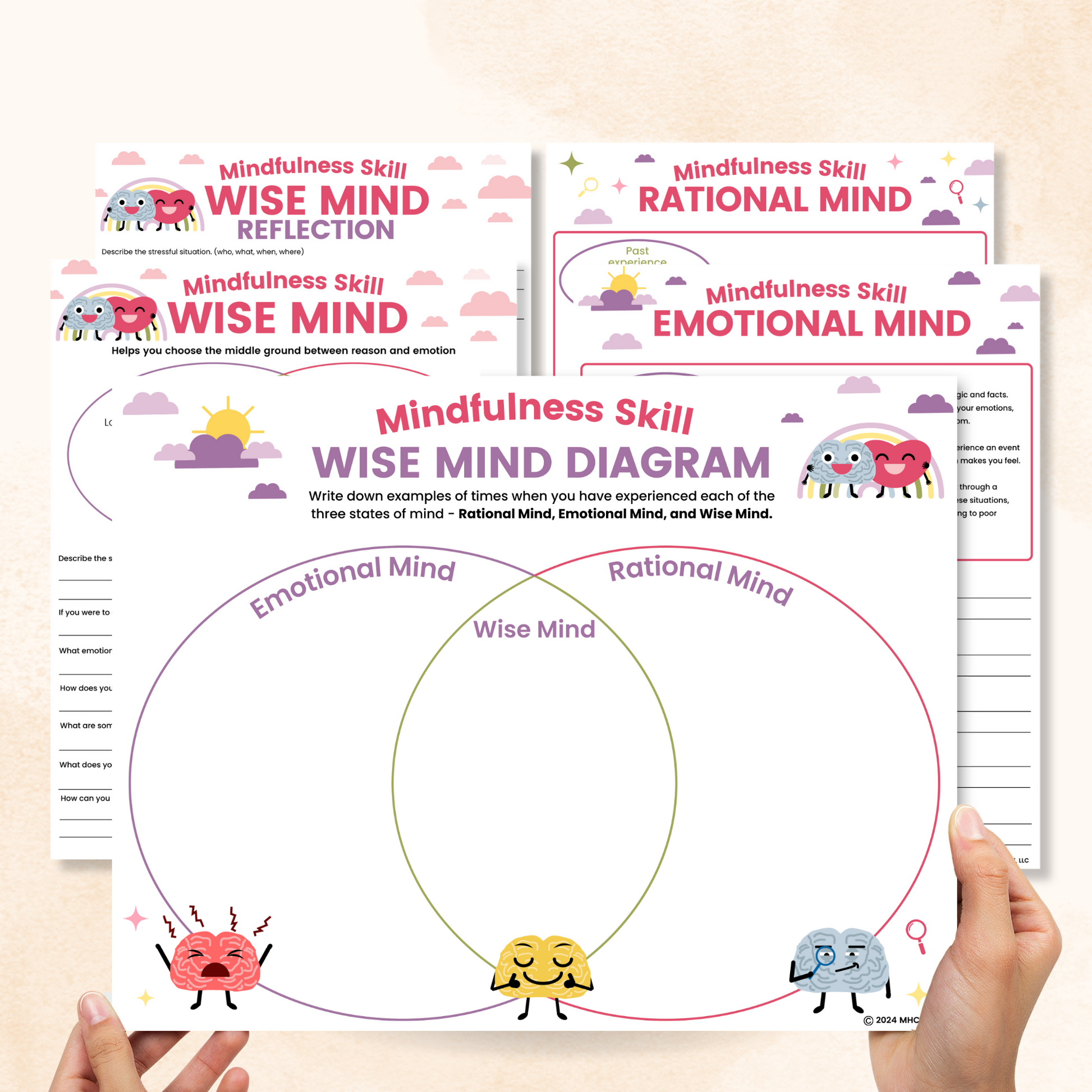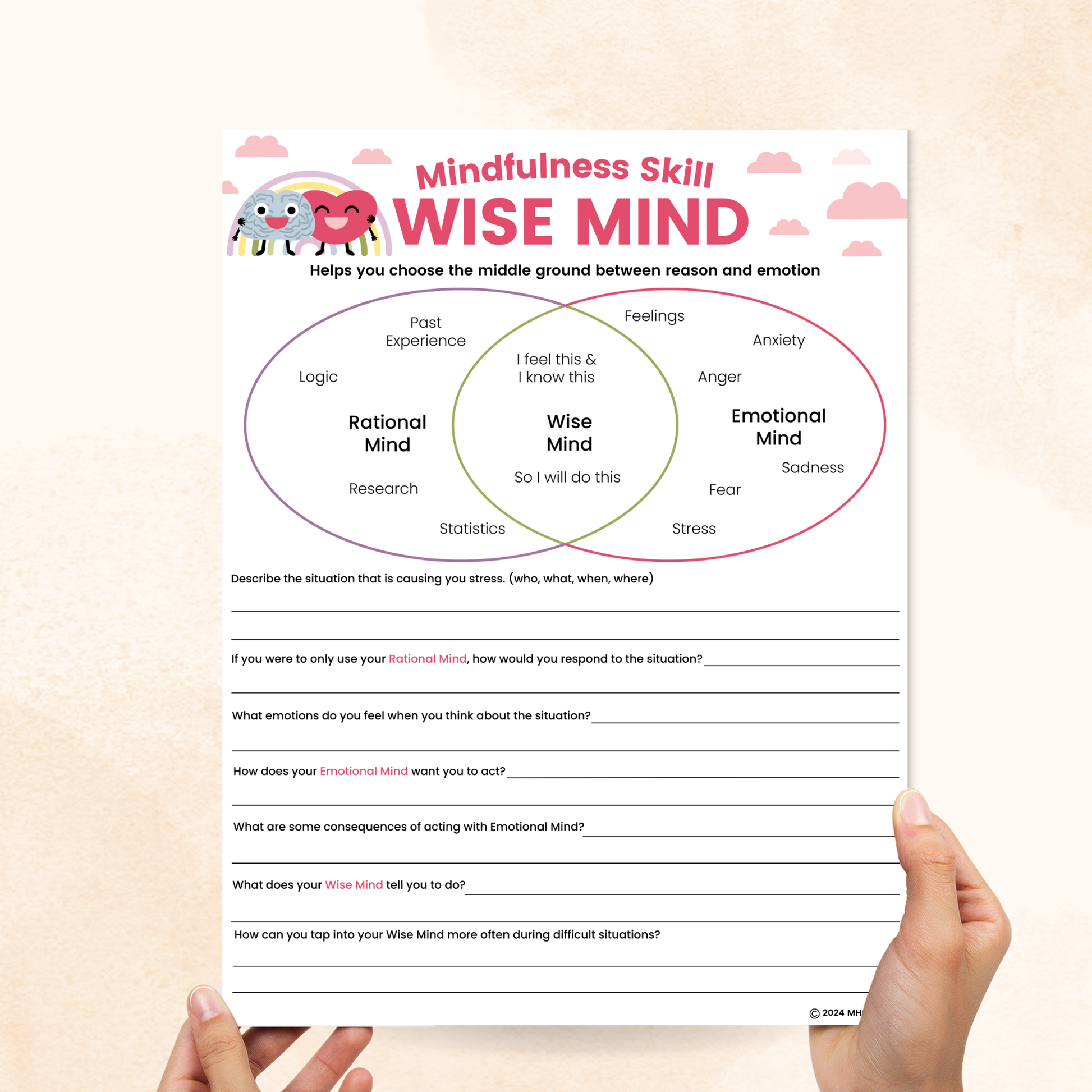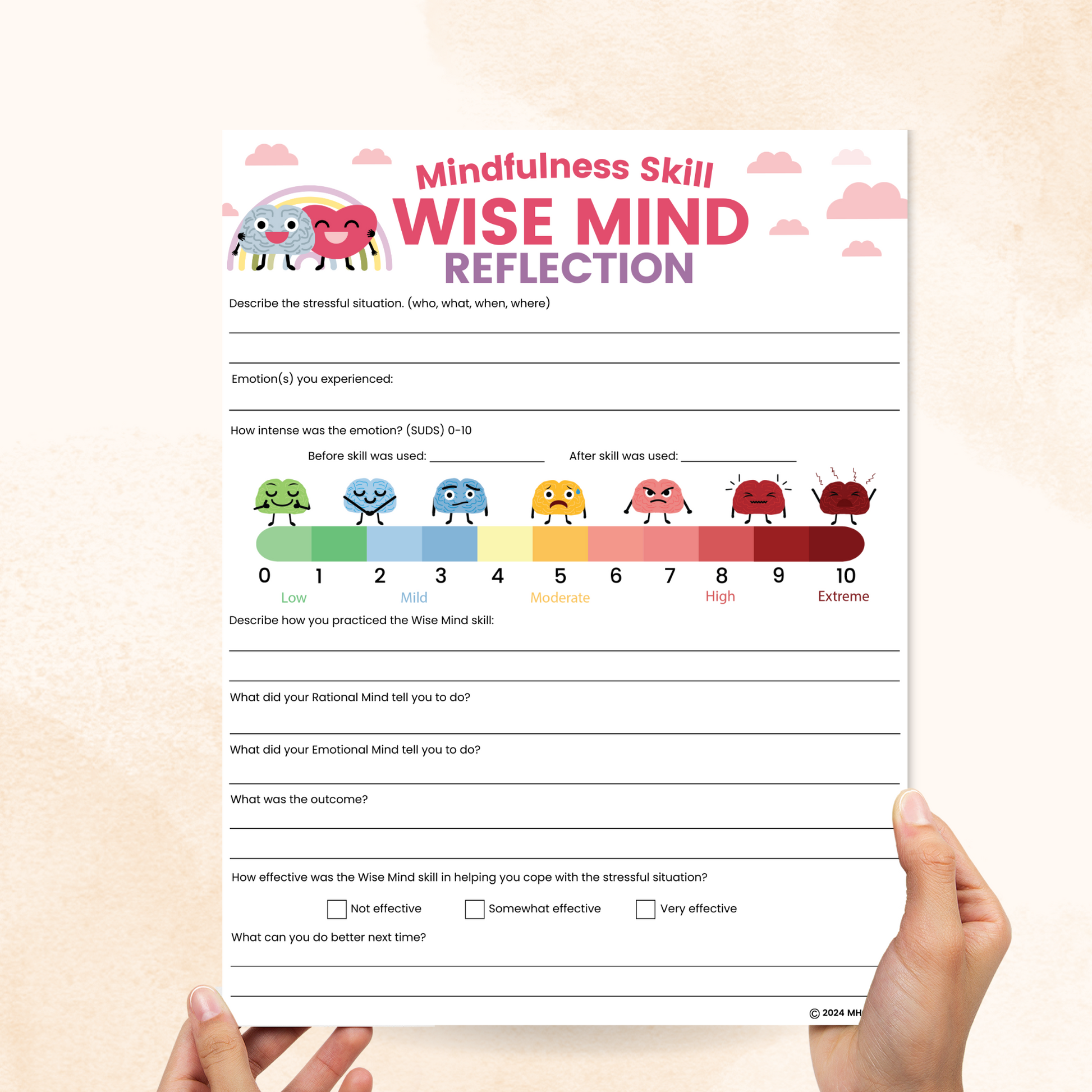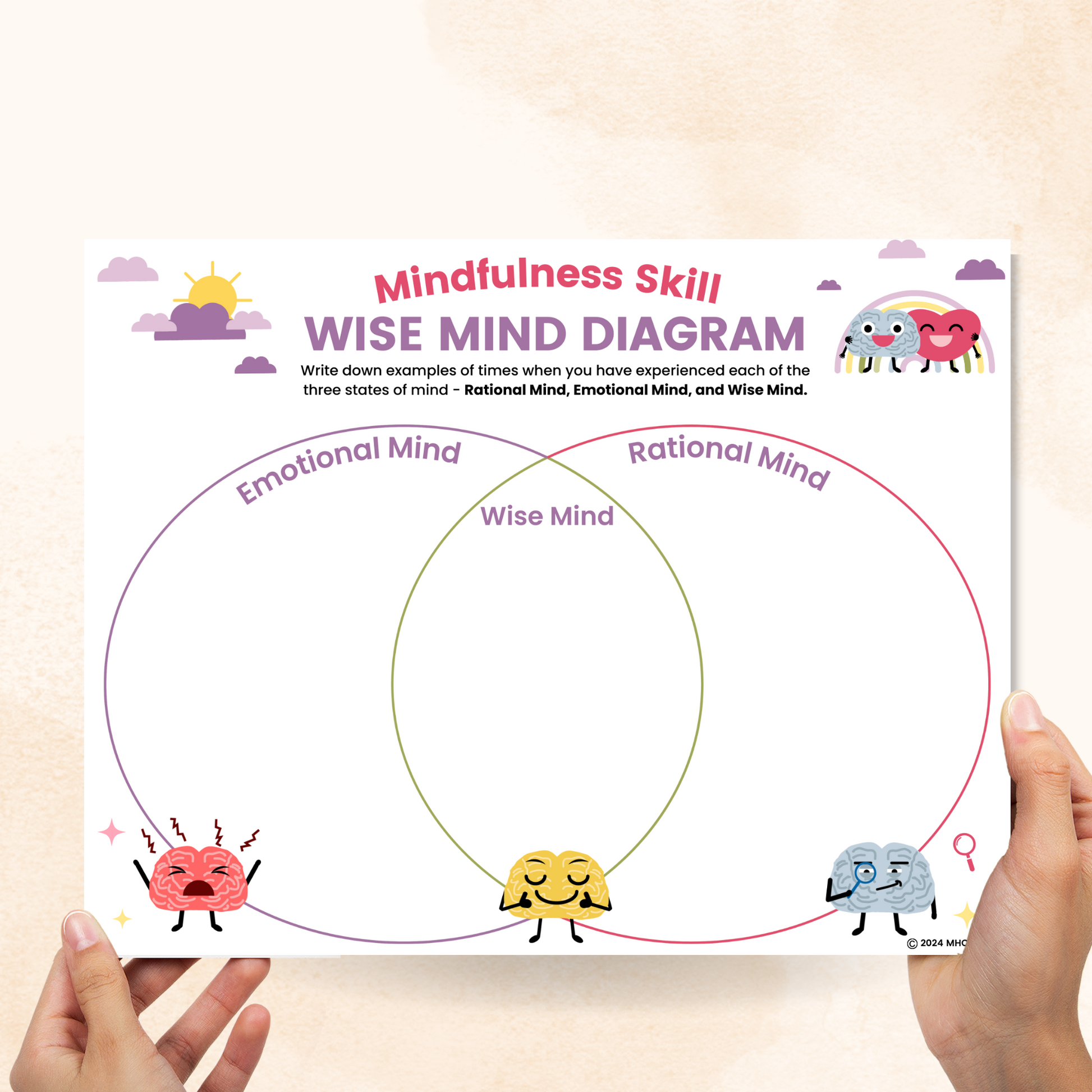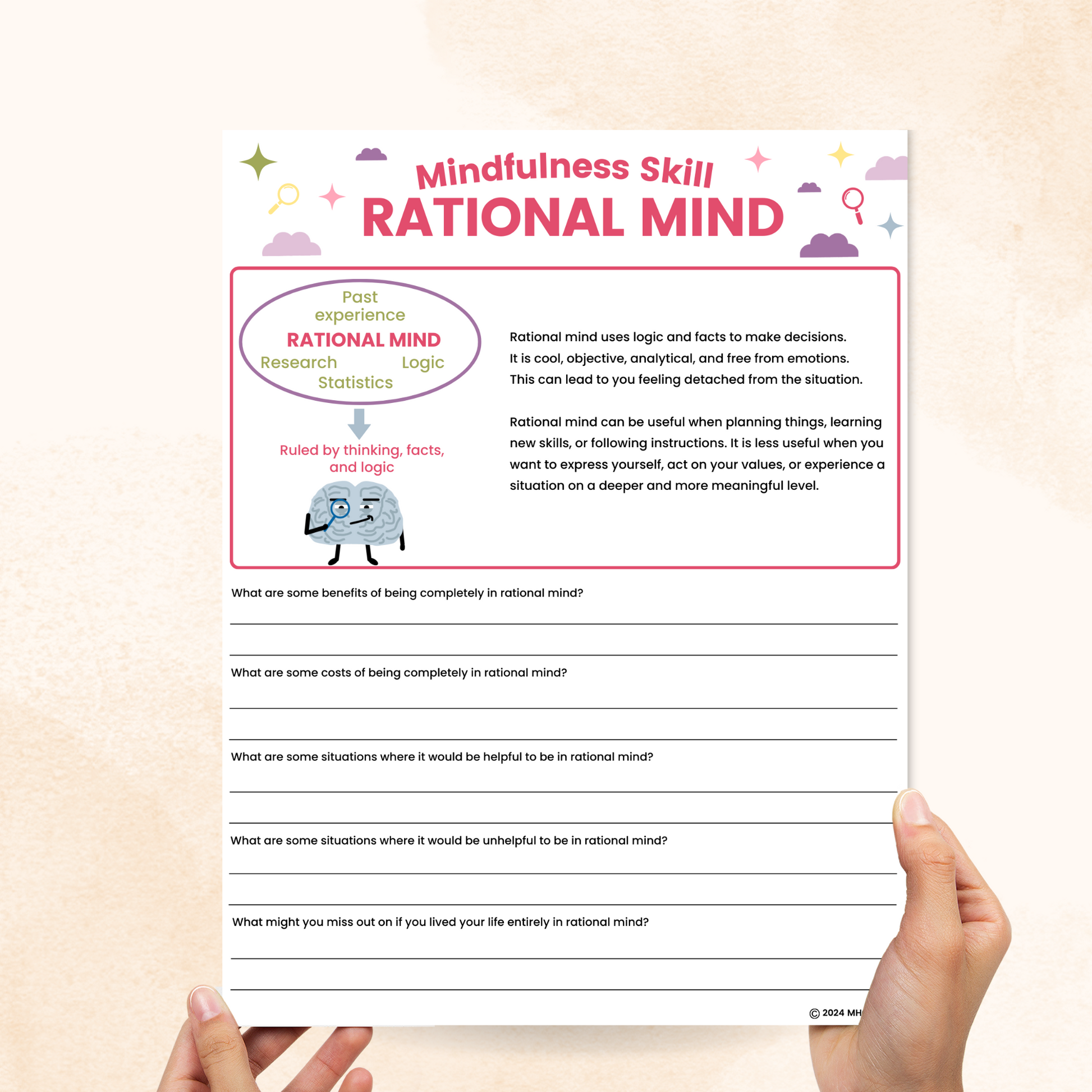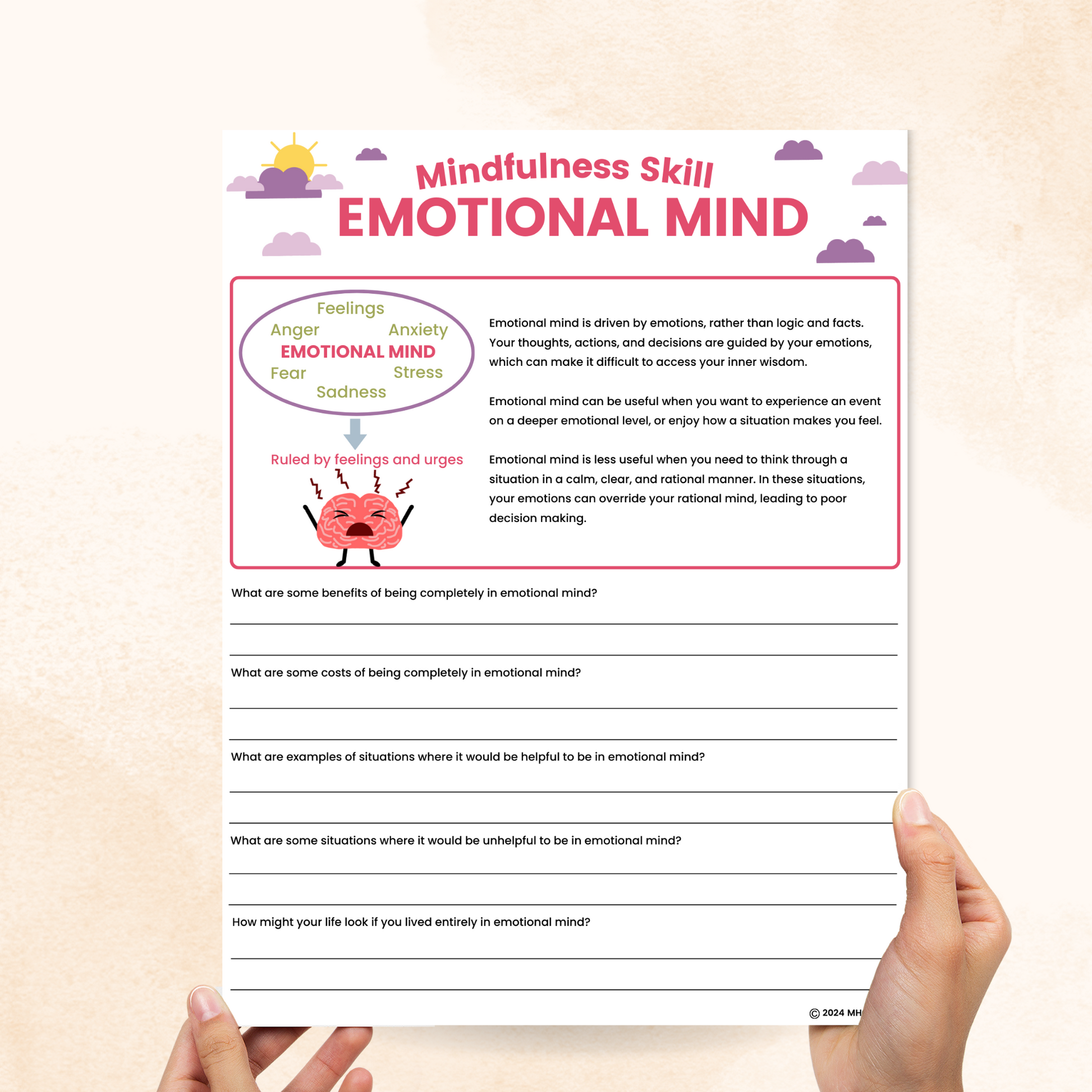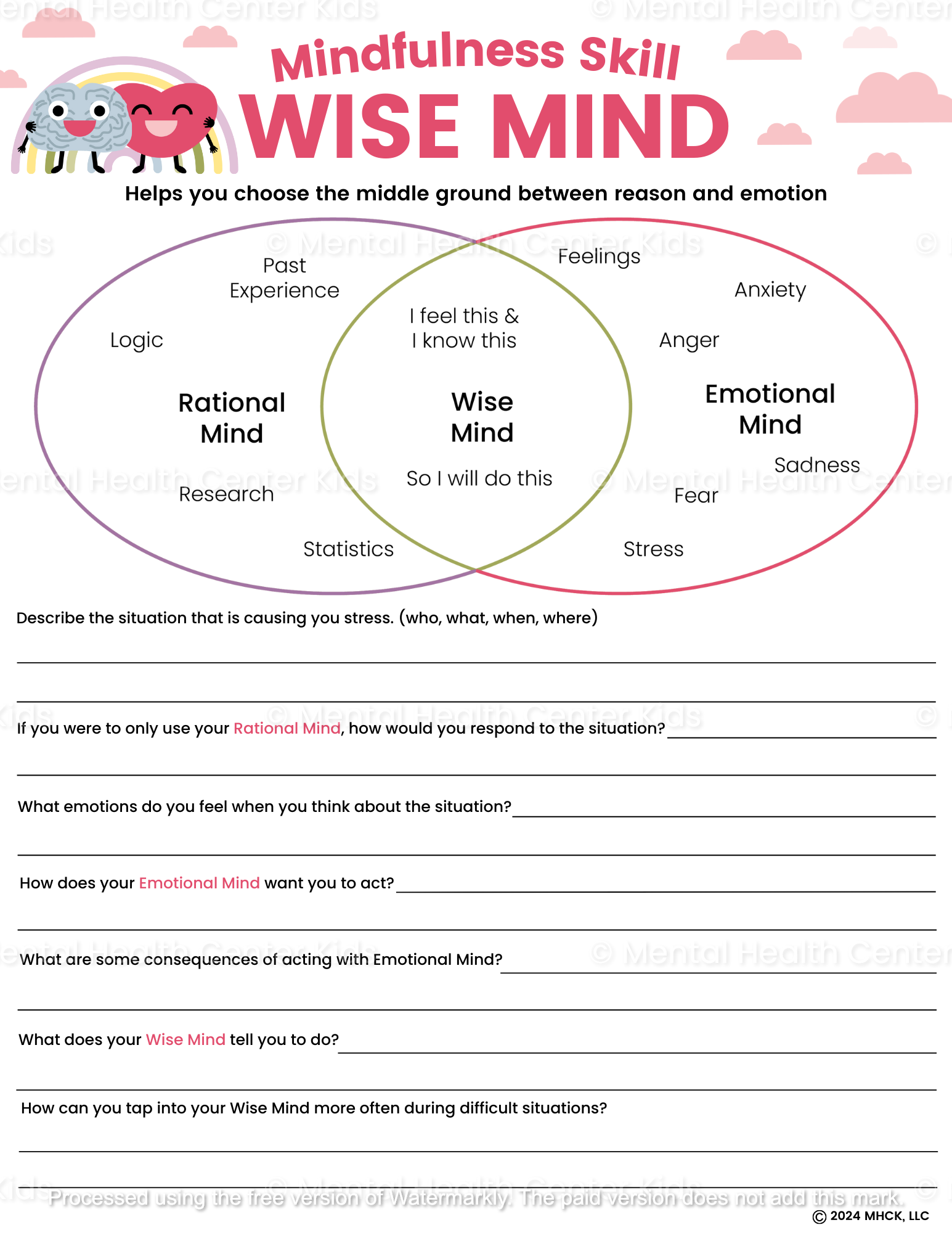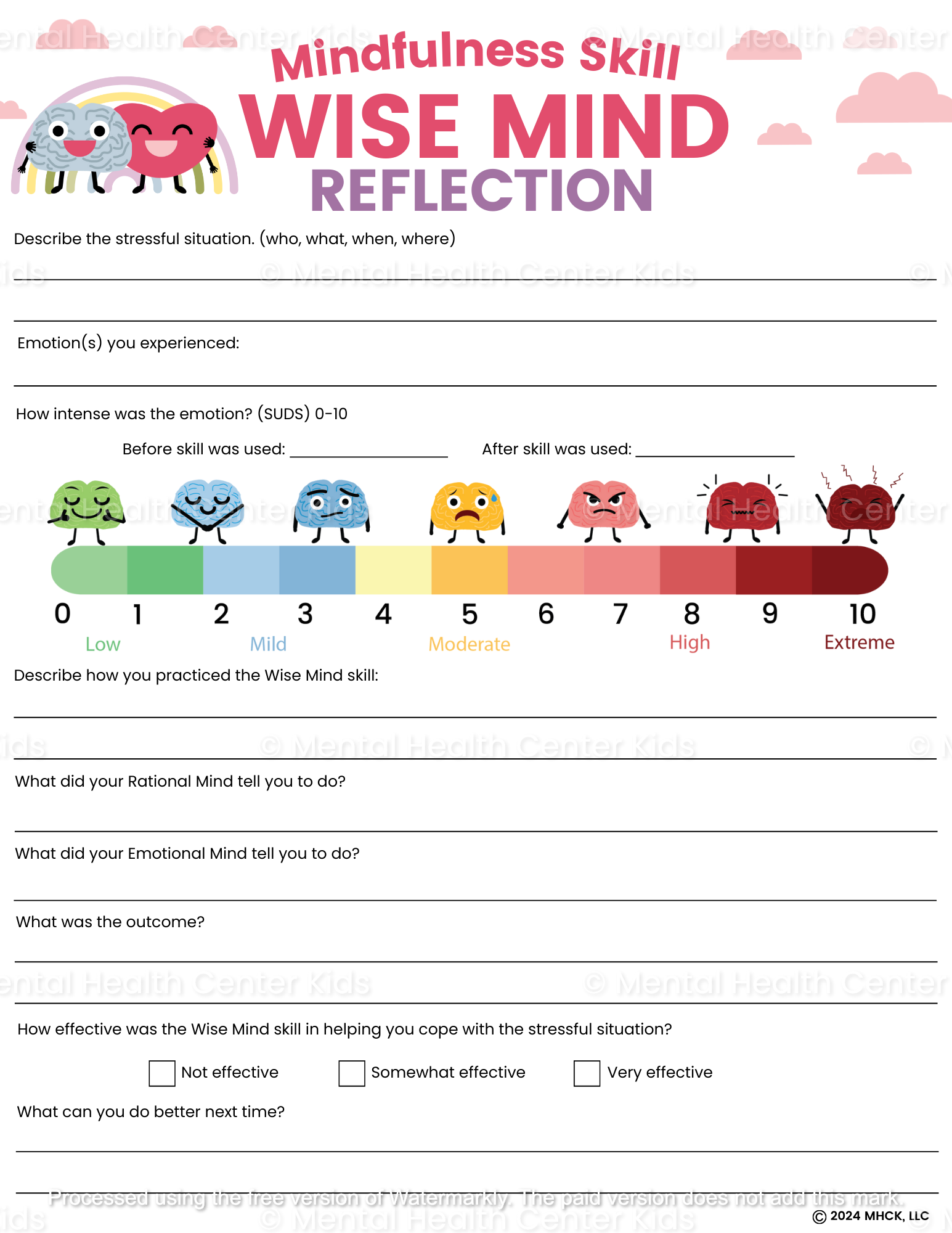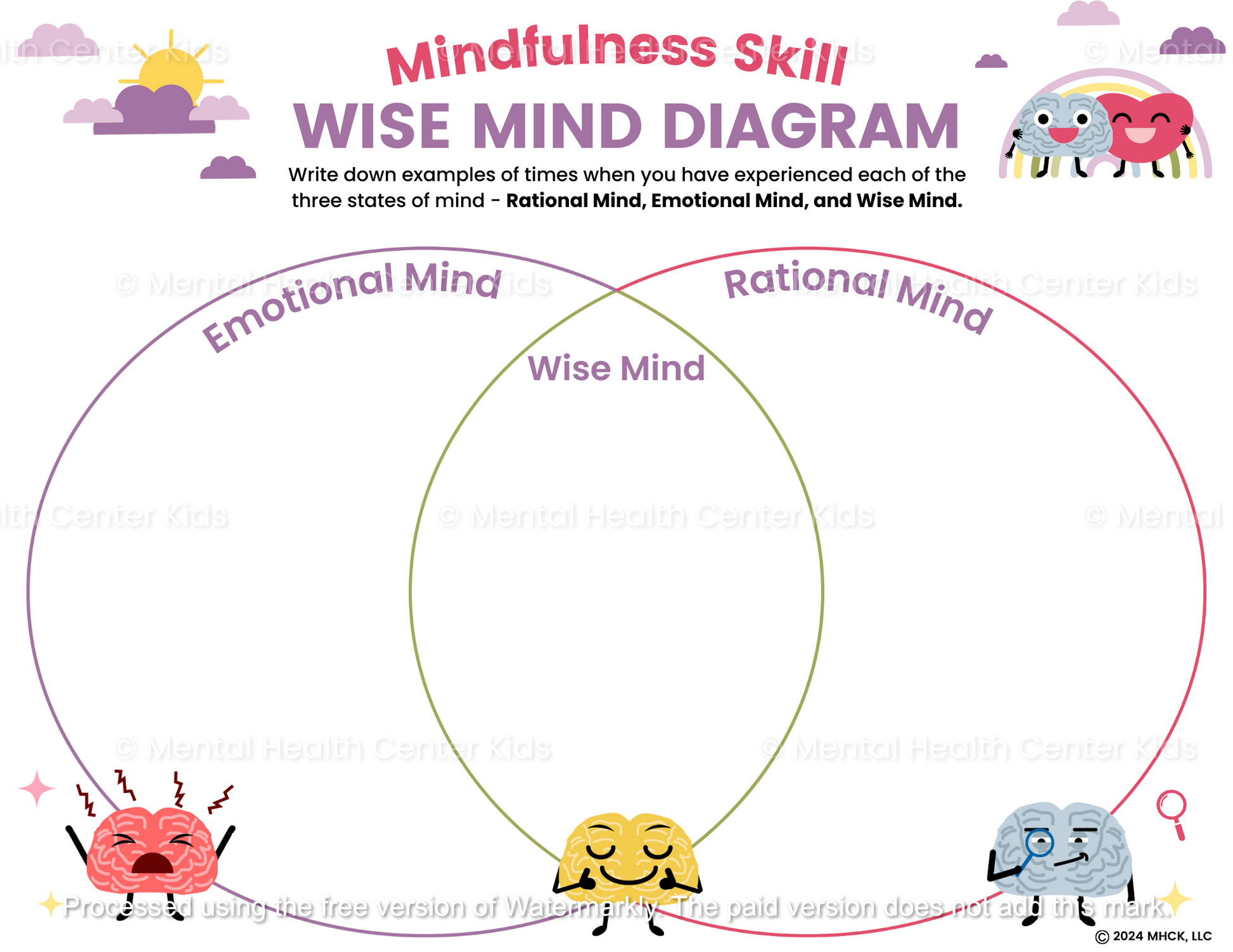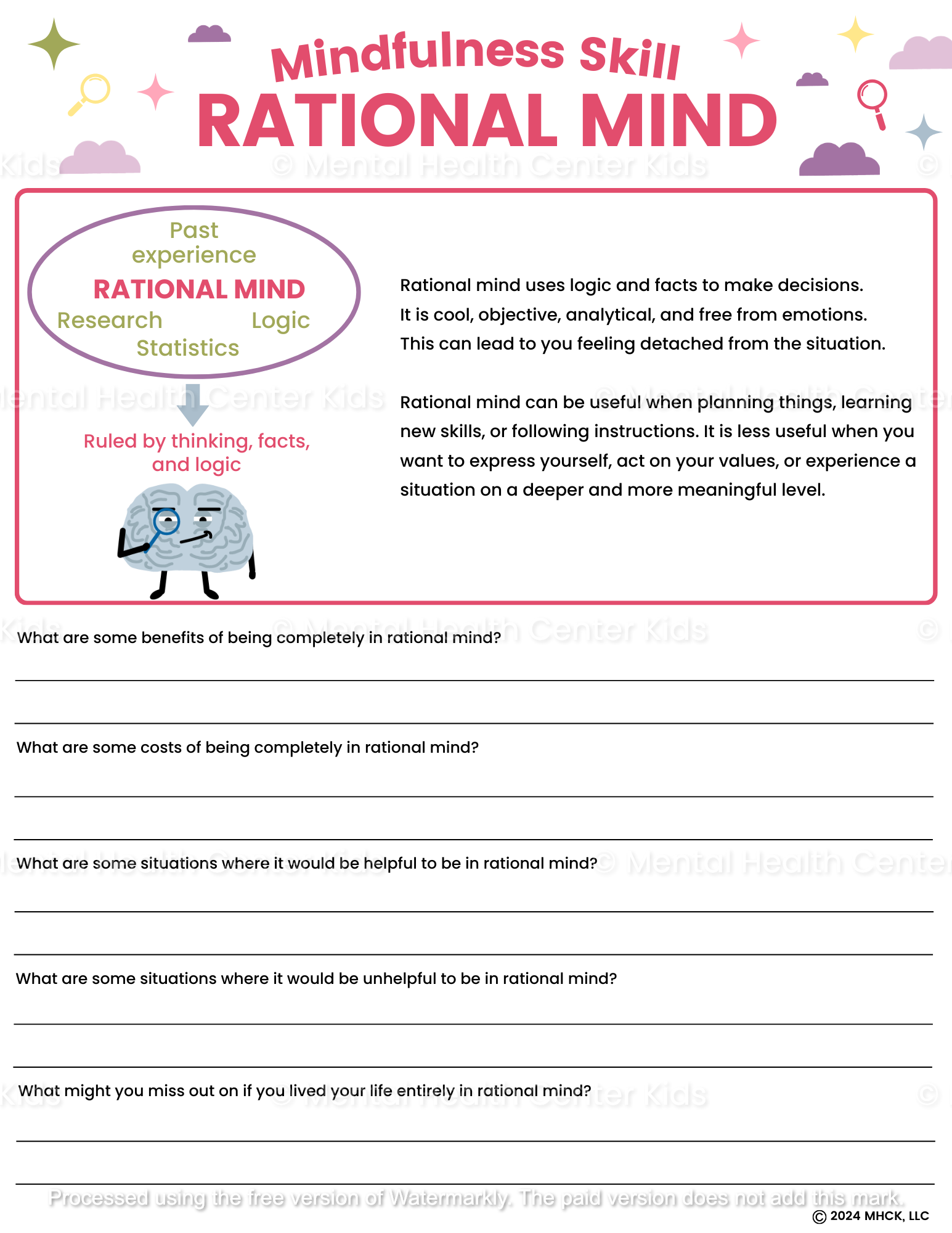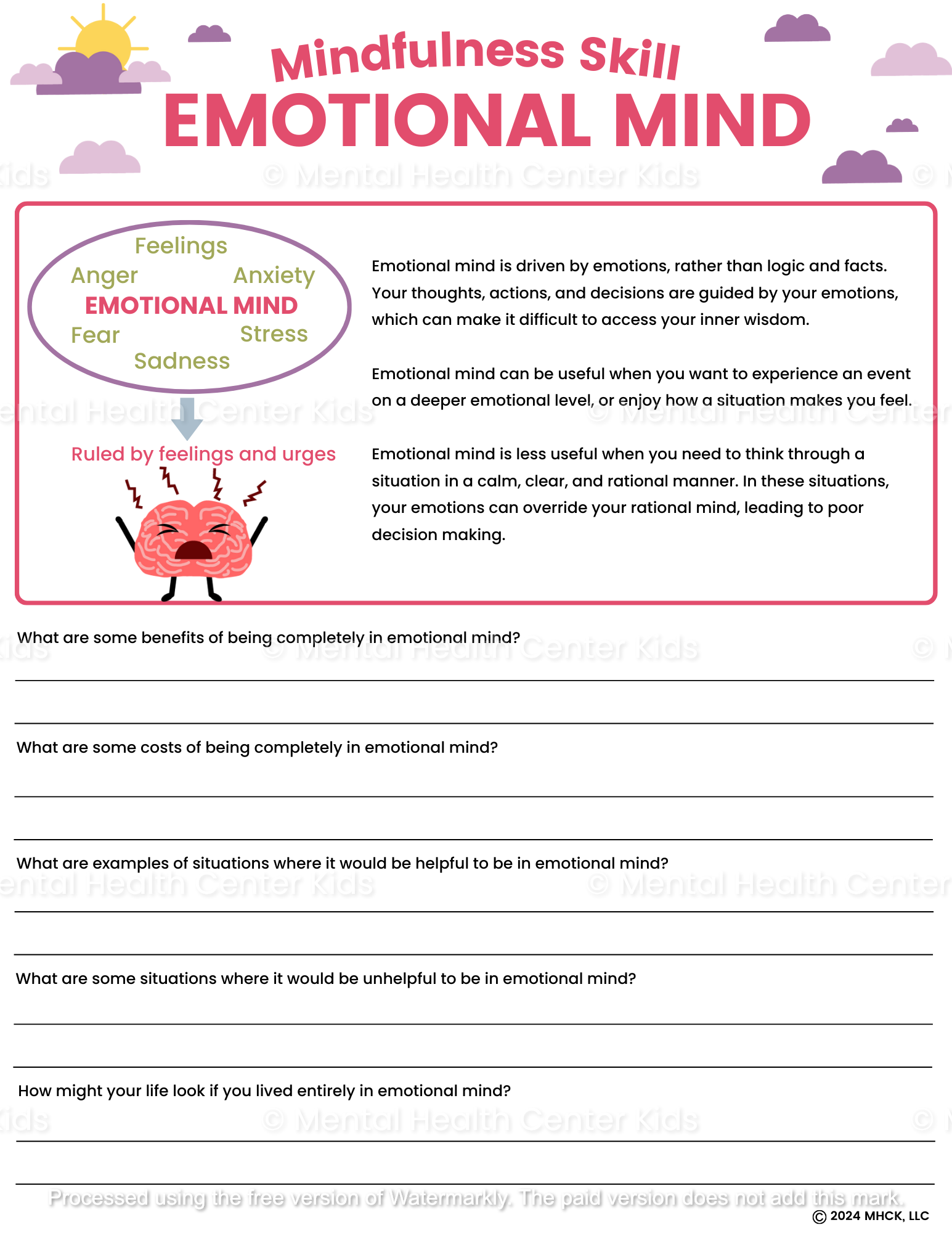Wise Mind DBT Worksheets
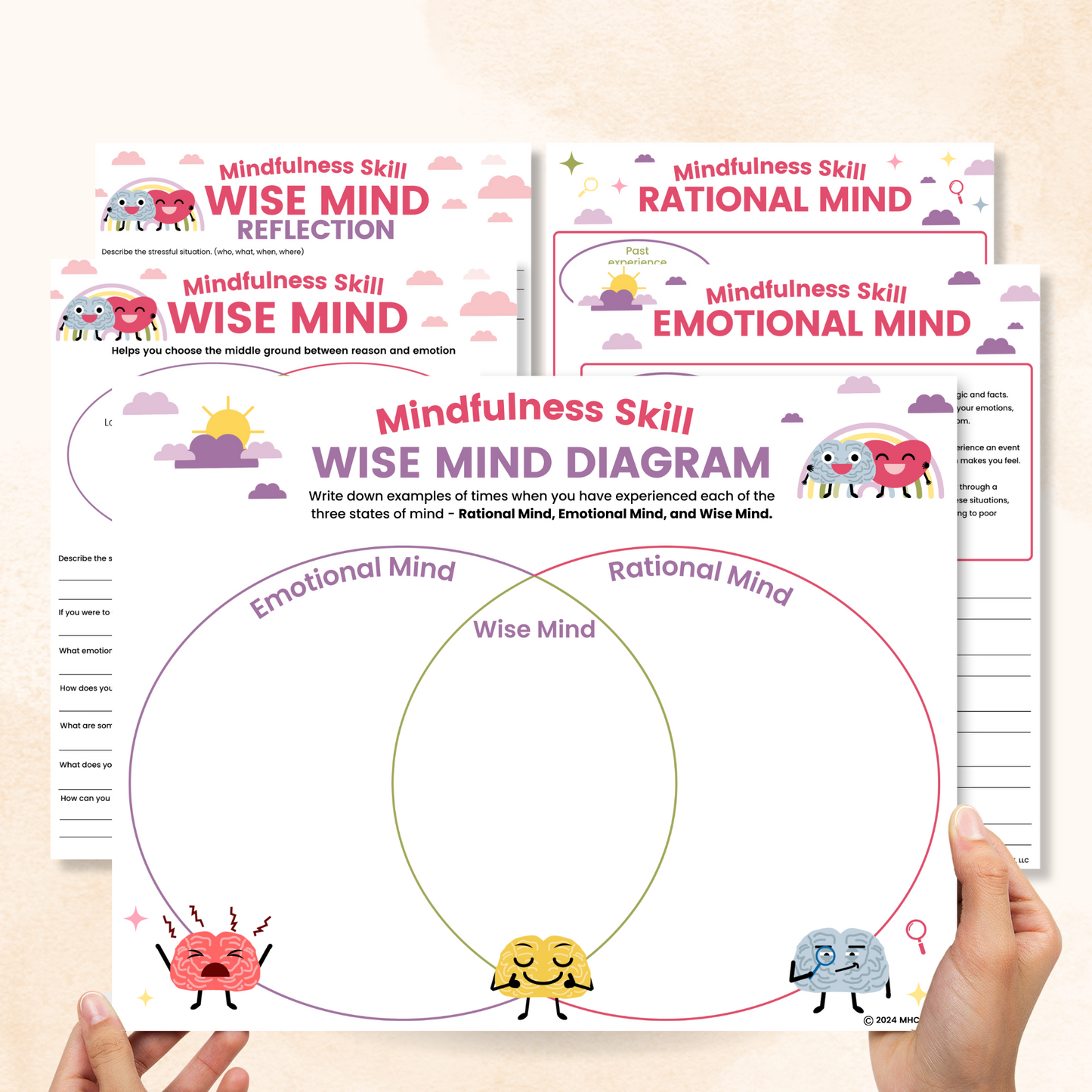
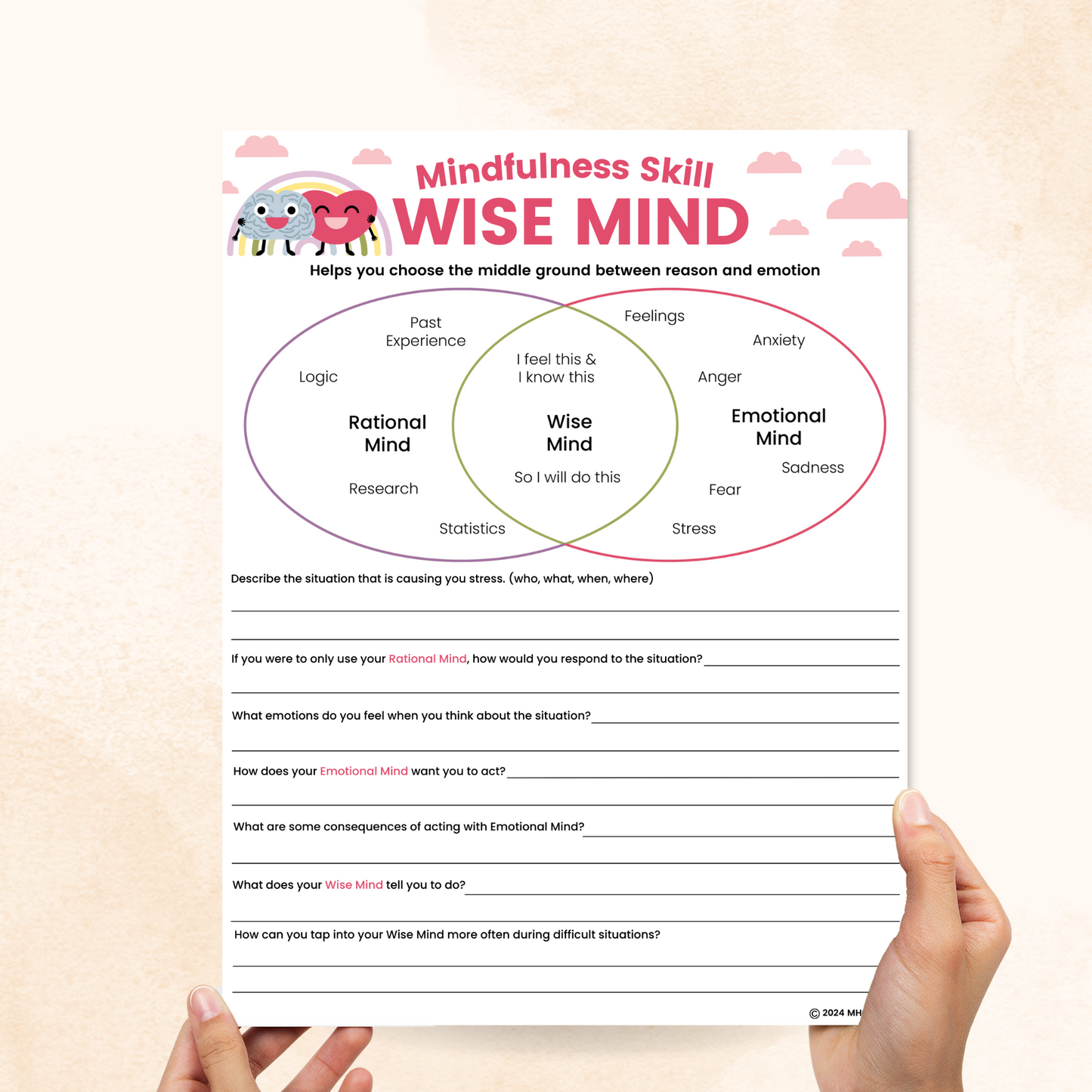
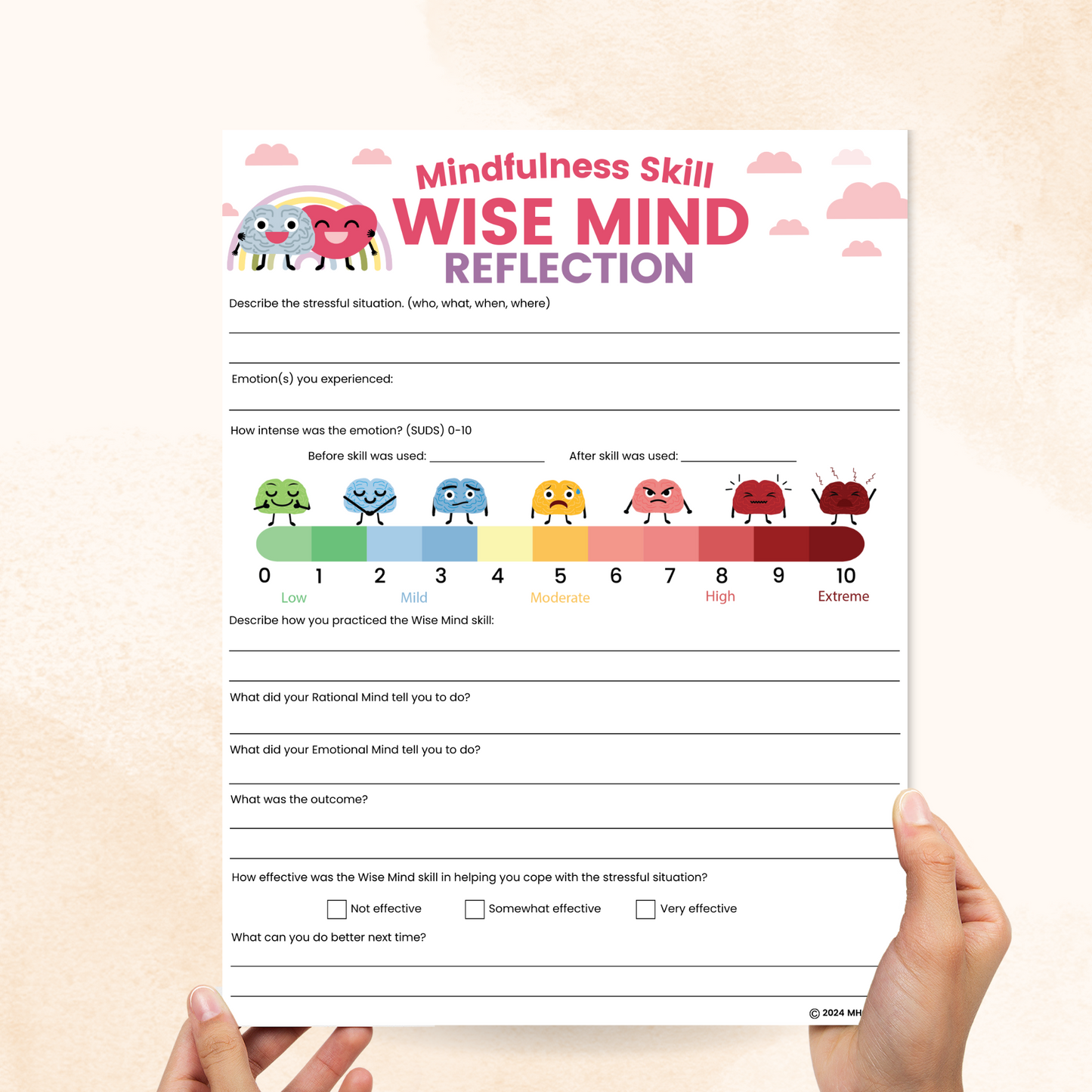
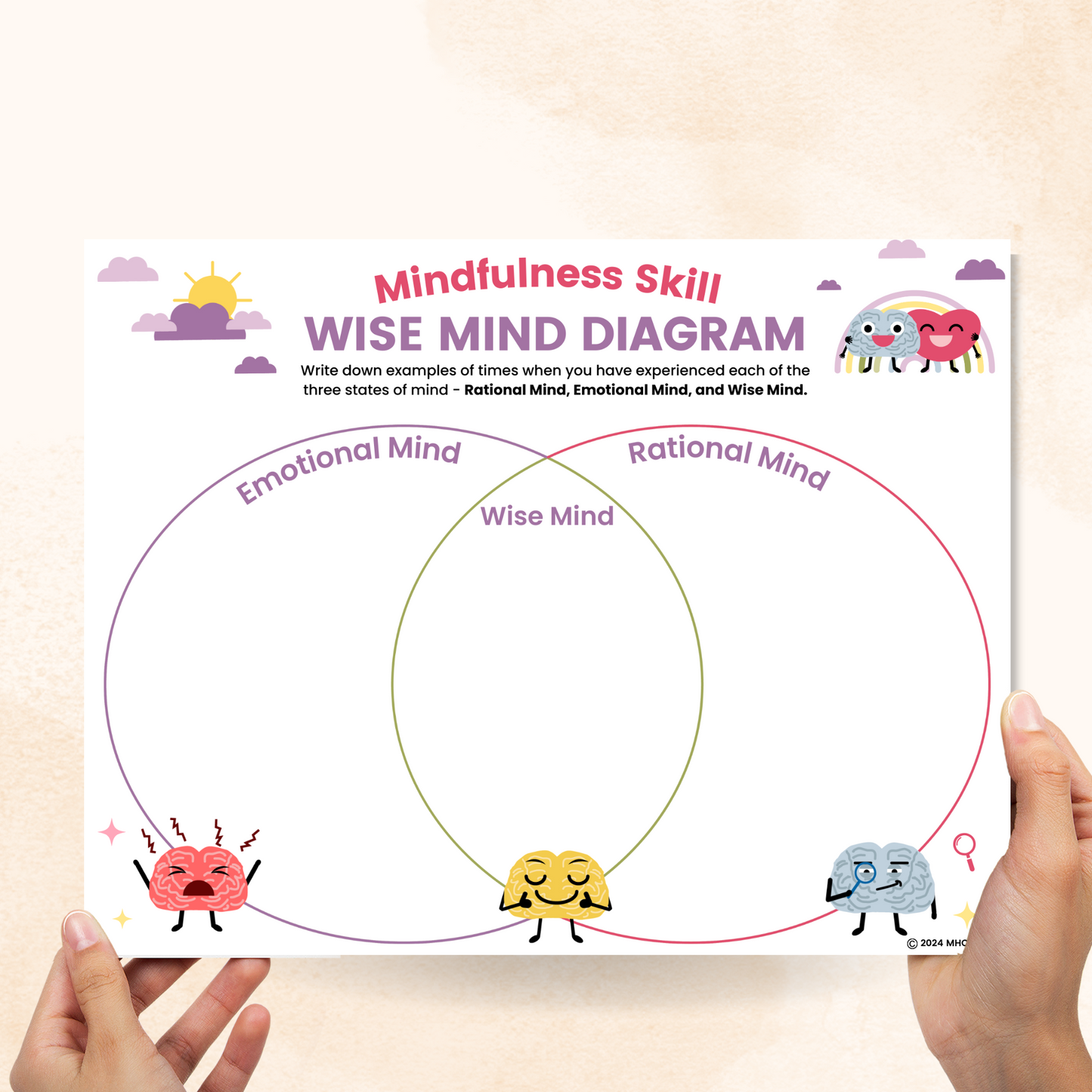
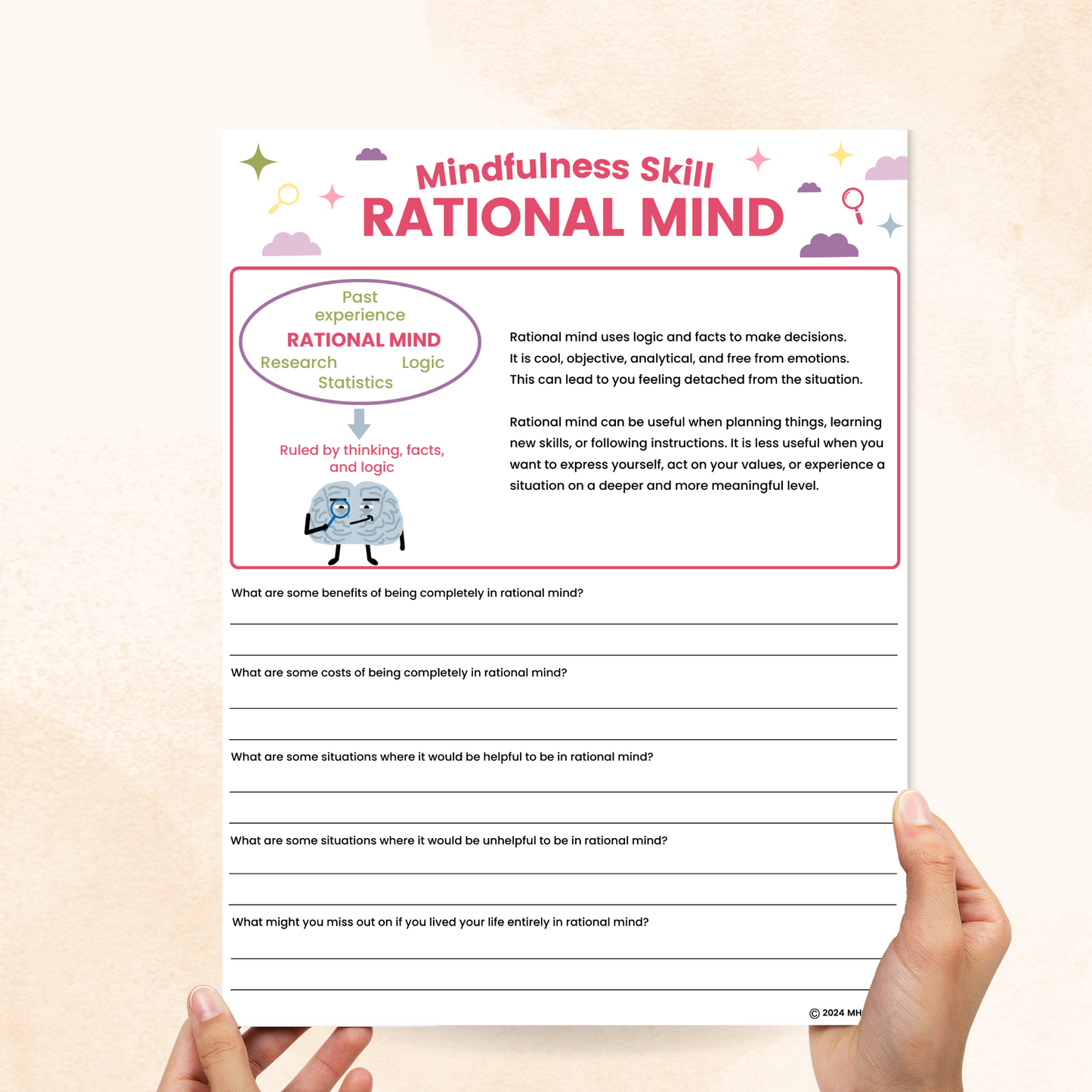
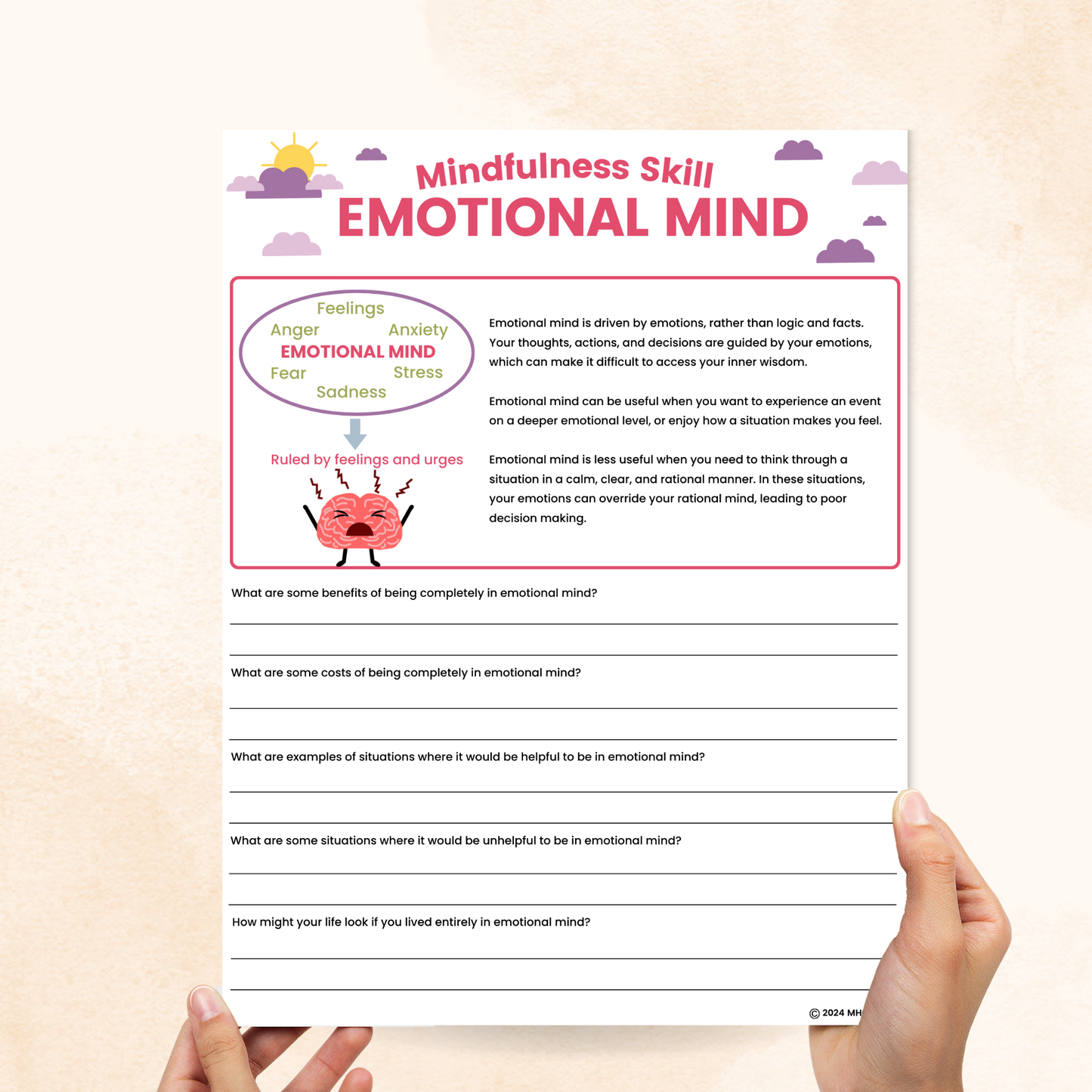
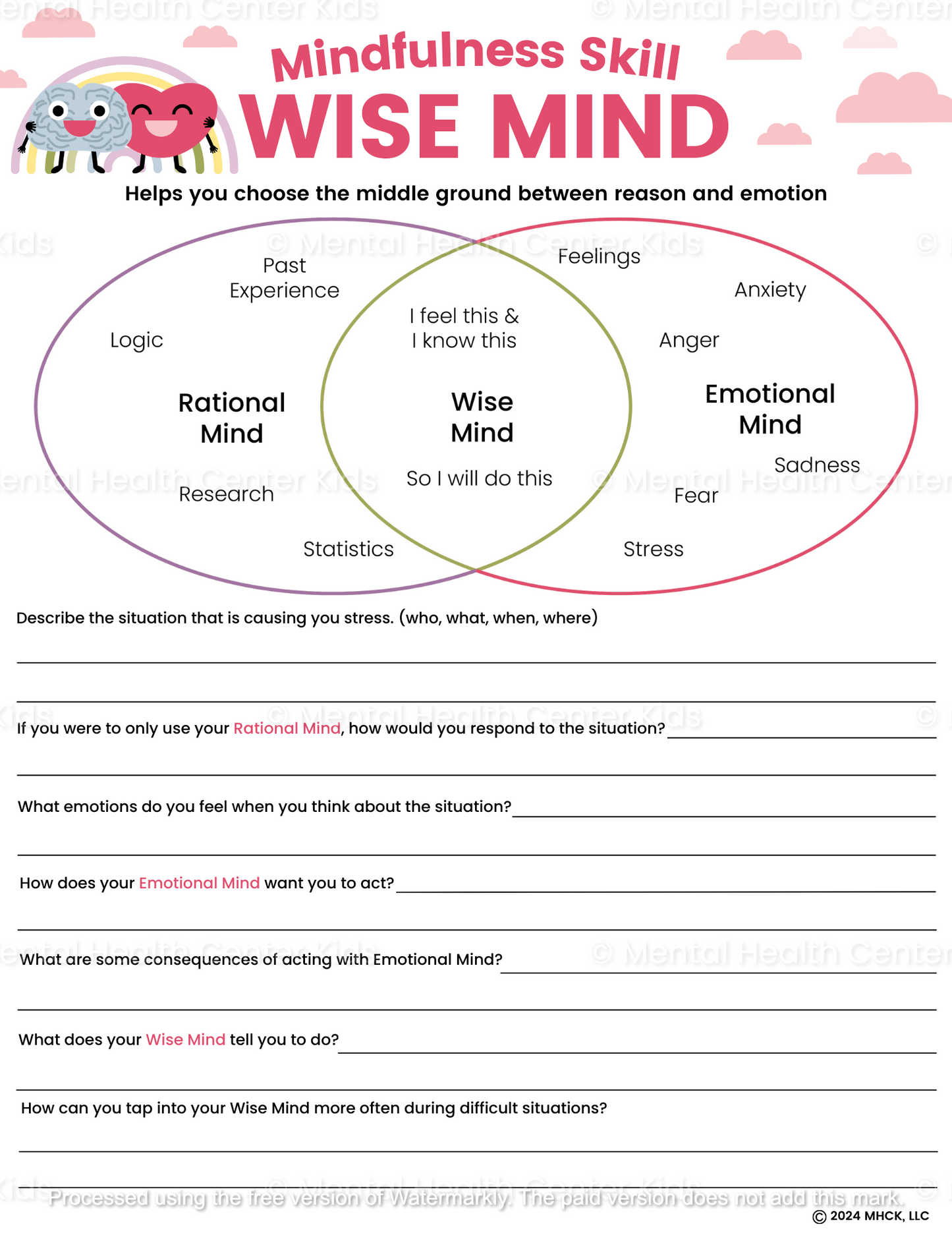
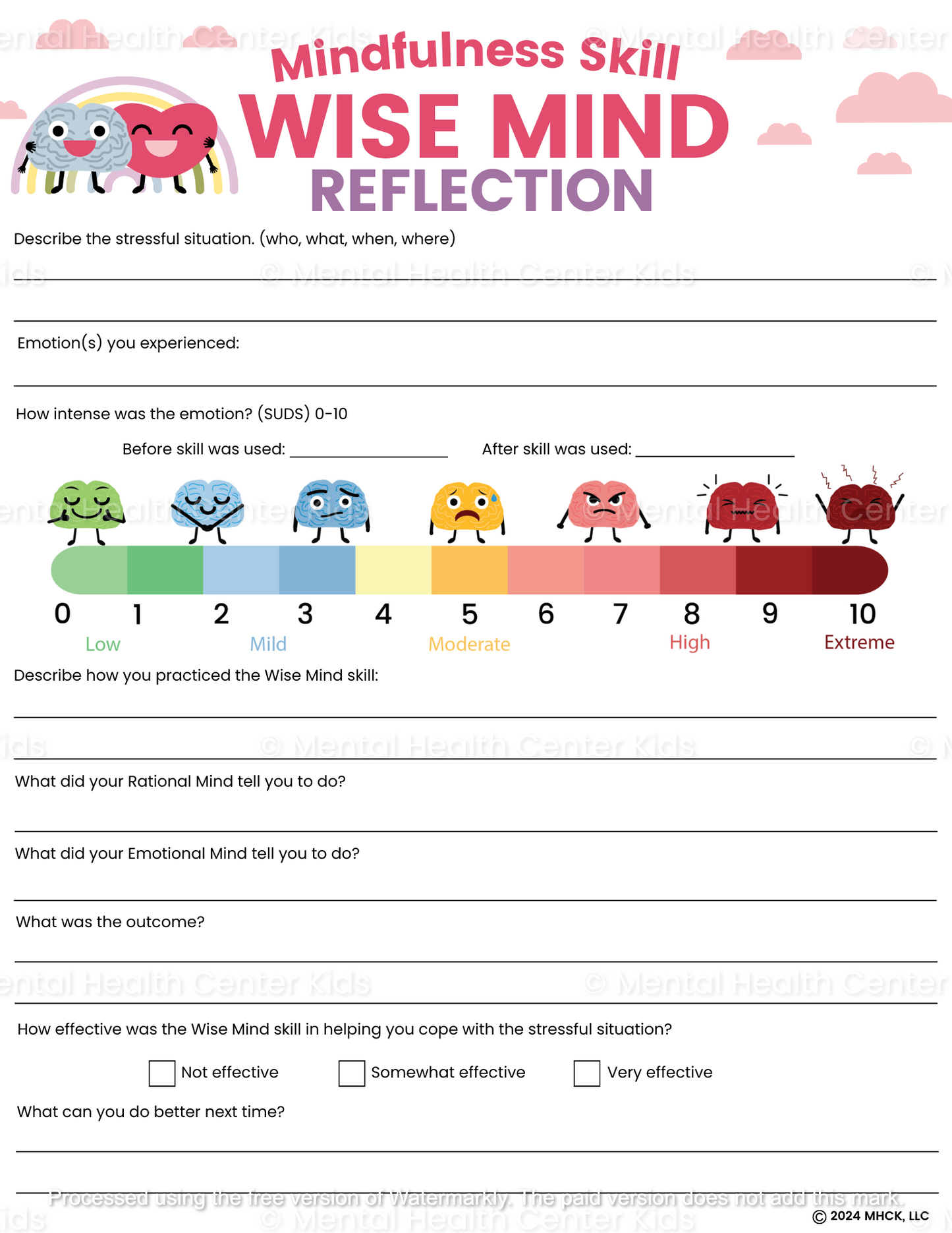
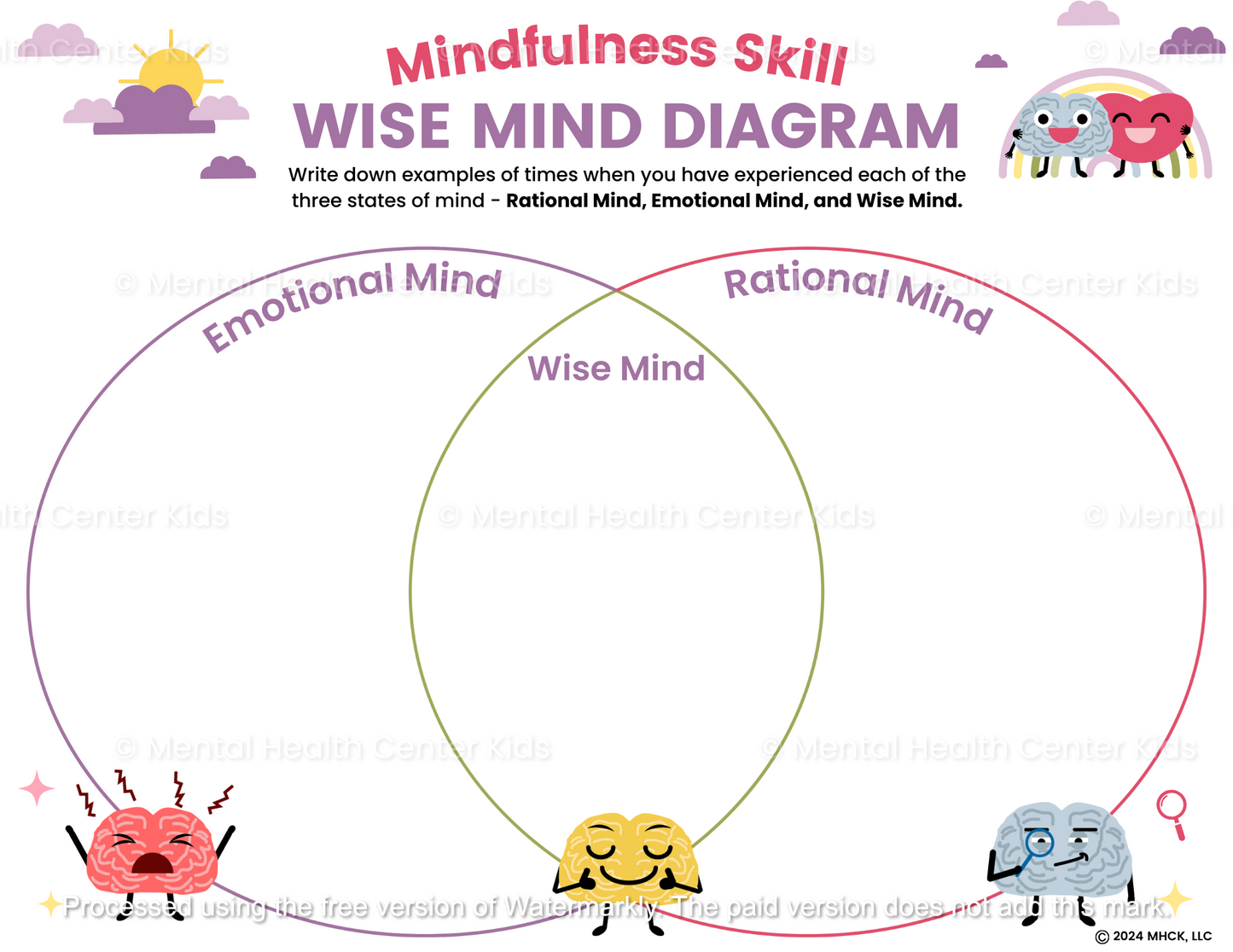
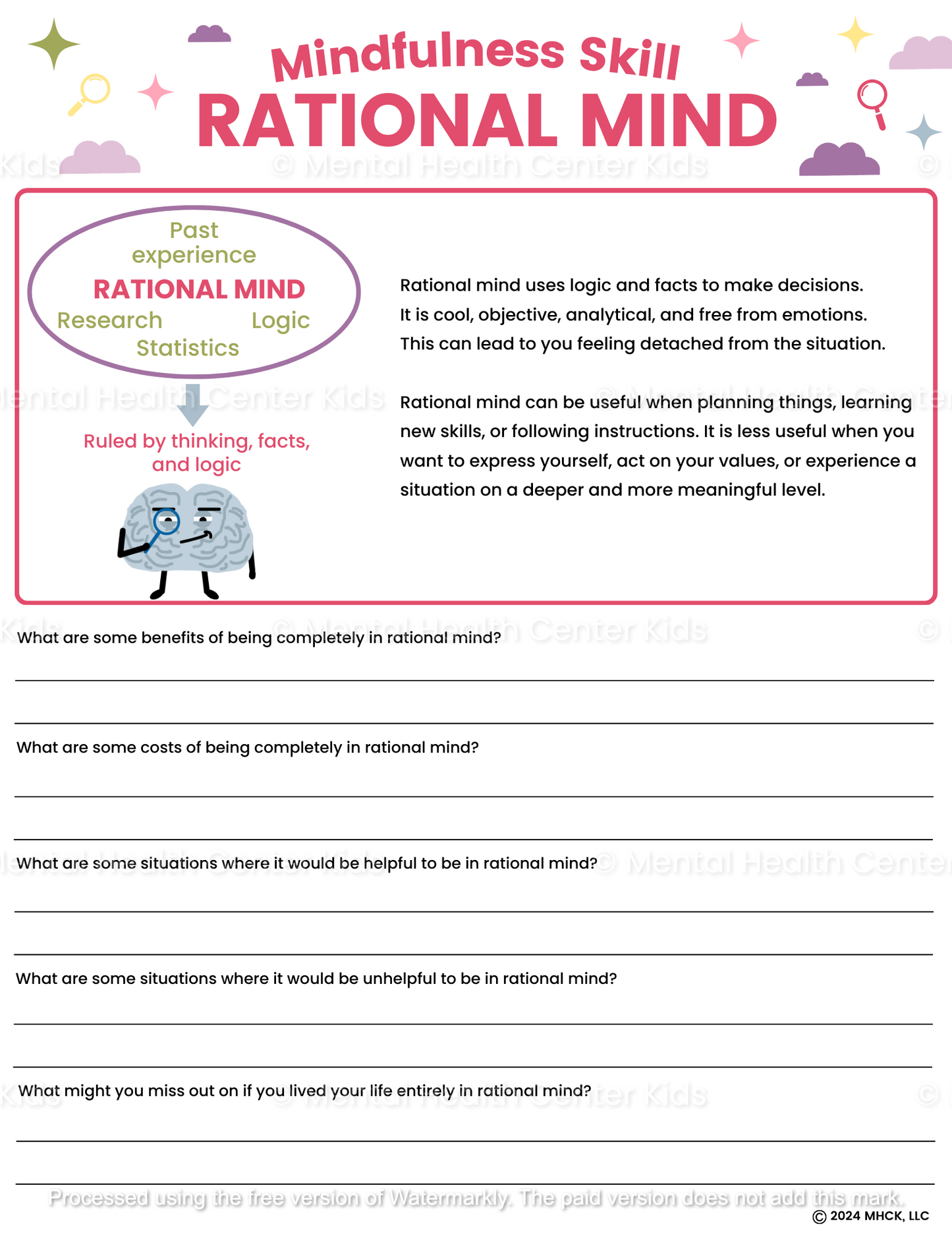
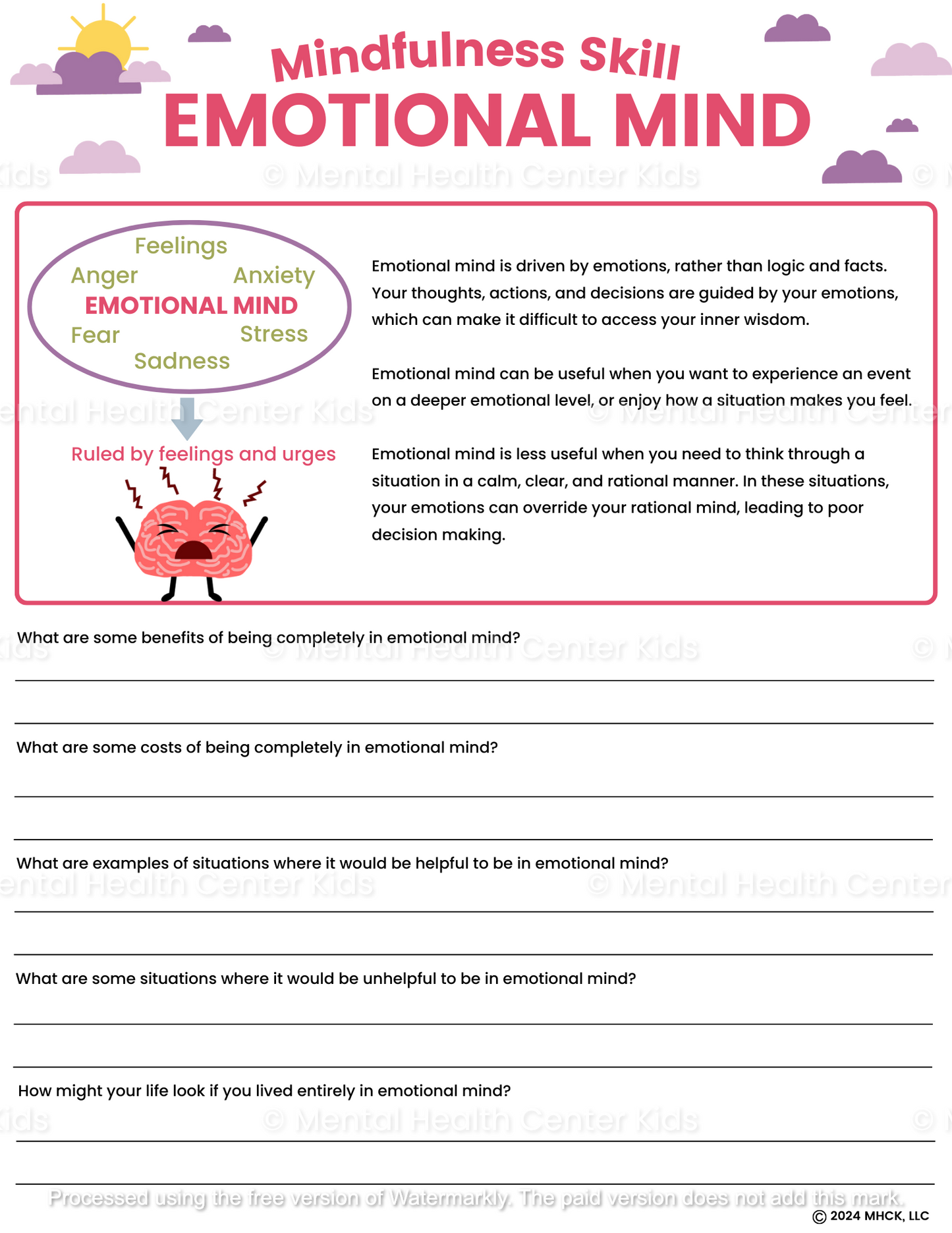
In Dialectical Behavior Therapy (DBT), the concept of “Wise Mind” refers to the balance between emotional and reasonable, or rational thinking. In this state, clients can acknowledge their emotions and not judge themselves, but at the same time, they consider facts and logic. Mindfulness is often involved in accessing the Wise Mind, and research shows that it helps clients make decisions effectively.
The Wise Mind DBT Worksheets include five separate worksheets that encourage clients to reflect deeper on the wise mind concept. One worksheet encourages reflection on a stressful experience they’ve encountered. They’ll describe the situation, explore the benefits and costs of reacting solely based on emotions versus logic, and consider the impact of being in either state of mind. One worksheet asks them to explore ways they can tap into their Wise Mind more often. This worksheet set includes our Wise Mind venn diagram worksheet.
Completing these activities helps kids and teens enhance their understanding of the Wise Mind skill and improve it so that they can make better choices in life. As they work through each sheet, be available to clarify some concepts they may not understand.
These worksheets are a helpful complement to our Wise Mind DBT handout, which describes the wise mind concept in a visually appealing format.
*This item is an instant digital download. A link to download your files will be emailed to you once payment is confirmed.
Want more resources like this? Check out our full catalog of DBT worksheets and handouts.
References:
- Eeles, J., & Walker, D. (2022d). Mindfulness as taught in Dialectical Behaviour Therapy: A scoping review. Clinical Psychology and Psychotherapy, 29(6), 1843–1853. https://doi.org/10.1002/cpp.2764
- Mas-Cuesta, L., Baltruschat, S., Cândido, A., Verdejo-Lucas, C., Catena-Verdejo, E., & Catena, A. (2024b). Brain changes following mindfulness: Reduced caudate volume is associated with decreased positive urgency. Behavioural Brain Research, 461, 114859. https://doi.org/10.1016/j.bbr.2024.114859
- Instant digital download
- File: Fillable PDF - 5 Pages
- Size: 8.5" x 11"
Frequently Asked Questions
Great l!
We appreciate your 5-star review, Nadya! The concept of Wise Mind is so important in DBT. We hope our worksheets are helping you or someone you care for find balance.


